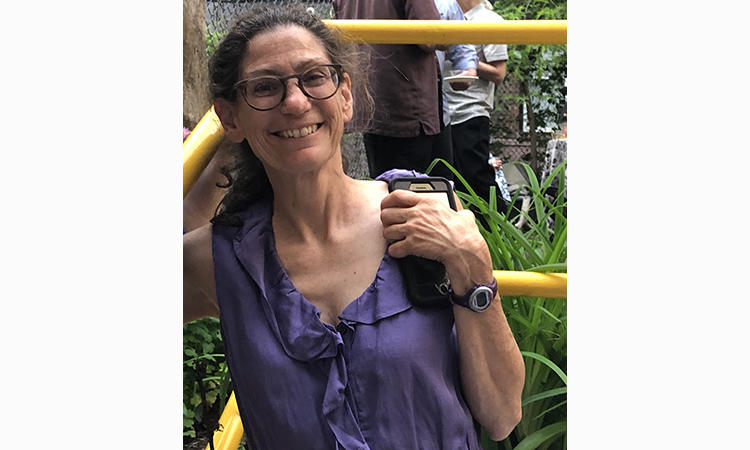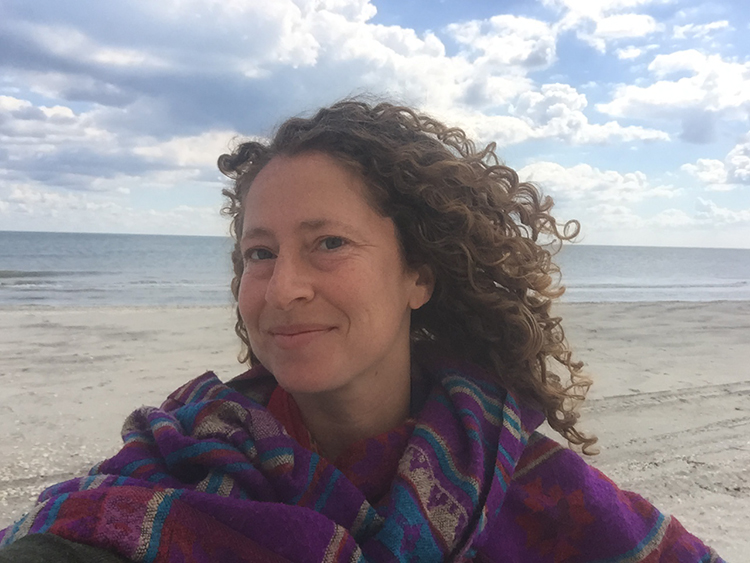Earth Matter is a nonprofit organization dedicated to reducing the amount of organic waste that enters the garbage stream in New York City. By creating the local infrastructure needed for composting and encouraging community participation in events and education programs, the organization has gone from strength to strength over the past decade. Marisa DeDominicis, one of its three founding directors, reflects on the journey so far.
How did Earth Matter get started?
Kendall Morrison, Charlie Bayrer and I co-founded Earth Matter back in 2009, but our journey started around four years before that when we were part of the Fort Greene Compost Project. This volunteer-led effort set out to capture residential food waste and turn it into compost for use in five community gardens.
Over the next few years, the volume of food scraps we collected and the number of people participating in the project snowballed, and a local nonprofit called GrowNYC was able to secure some funding to pilot the Fort Greene model more expansively. It soon became clear that we needed a larger-scale processing site.
We incorporated Earth Matter in time to host our first zero-waste event as part of the annual City of Water Day on Governors Island in July 2009. We recognized that the island — a vast 172 acres in New York Harbor — would be the ideal home for a closed-loop compost processing system and an educational nonprofit. By the next year, we had launched our compost learning center and become an official program partner with the Trust for Governors Island.
What kind of activities is Earth Matter involved with now?
As part of our compost operation, we process scraps collected from residents across Manhattan and Brooklyn through the NYC Department of Sanitation compost and food scrap recovery programs. Some of the waste collection sites now include staffing and offer a 24-hour service. Our capacity has significantly increased since we started: In 2011, we processed 5,000 lbs of waste, whereas last year, we handled 500,000 lbs.
Our volunteers run zero-waste stations at a variety of large-scale events on Governors Island, such as the annual Jazz Age Lawn Party, which helps to build public awareness and excitement around composting. We’re also proud to have helped the Trust for Governors Island go zero-waste. When securing contracts with vendors and festival organizers, zero-waste guidelines are now built in from the beginning. This year, we’re launching a buyer’s collective for vendors to bulk purchase compostable serviceware like plates, bowls, and cutlery too.
What does neighborhood participation look like and why is it important?
We provide as many opportunities as possible for our NYC neighbors to ask questions and learn about zero-waste living through our compost learning center and public events program. We aim to inspire people to adopt these practices as part of their lifestyles. Whether it’s saying no to plastic straws, rescuing food scraps or launching composting projects of their own, we know community engagement can have a considerable ripple effect when it comes to decreasing waste and contamination. Our neighbors spread the values of Earth Matter through their actions and choices.
Education is core to our mission as an organization, so everything we do is informed by that, and all of our volunteer roles are part of our overall educational model. Volunteers are involved in all aspects of our organization, and we work with around 15,000 of them each year. They care for animals, run zero-waste stations at events, remove contaminants like plastics from the compost mix, use carpentry skills to build and repair parts of our systems, and just about anything else you can think of.
Which features of the learning center are most popular?
Since 2010, we’ve incorporated farm animals in the learning center to showcase all parts of the composting cycle. We started with worms, then expanded to chickens, goats, and rabbits. Everyone — whether young or old — likes spending time with the animals.
Families seem to love trying out weird and wonderful composting methods like pickle barrel tumblers, ‘stop, chop and drop’ bins, and worm banks. Many people begin diverting their own food scraps from landfill by starting a worm bin at home or bringing their organic waste to neighborhood drop-off points after visiting us.
We also get rave reviews for our adult farm apprenticeship program. This teaches practical skills like crop planning, irrigation, harvesting, and tool usage for operating a small-scale urban farm. And, of course, the finished compost brings a lot of joy to the Earth Matter community. Some of us like to call it “black gold.”
What role does knowledge-sharing play in your organization?
Right now, we provide training to more than 45 different community groups, helping their members learn about the composting process and get some hands-on experience making compost. Our lessons can involve everything from building compost windrows to emptying food scrap bins to removing contaminants from the mix.
We love sharing our knowledge and learning from other groups and organizations, so we are always open to conversations and collaborations with anyone involved in closed-loop, reduction, reuse, and recycling projects. We’re currently working with Circular City, a collaborative festival, to get New Yorkers engaged with the ideas of the circular economy. This May, we’ll also host a daylong training program at The National Cultivating Community Composting Forum.
What advice would you give to others building community projects?
Resilience and adaptability are important qualities to help you overcome challenges and make changes where necessary. For example, development on Governors Island has meant we had to move the physical location of our entire operation more than once!
Seek people who have “can-do” attitudes too. Our small staff and volunteer teams are amazing at tackling whatever environmental or logistical challenges come our way. Don’t underestimate the effectiveness of like-minded people in making change happen. If you bring positive and earnest groups of people together in a shared mission, everything else will follow.
Visit the Earth Matter website to learn more about how you can get involved.
This Q&A has been edited for length and clarity. Header image provided by Marisa DeDominicis.









